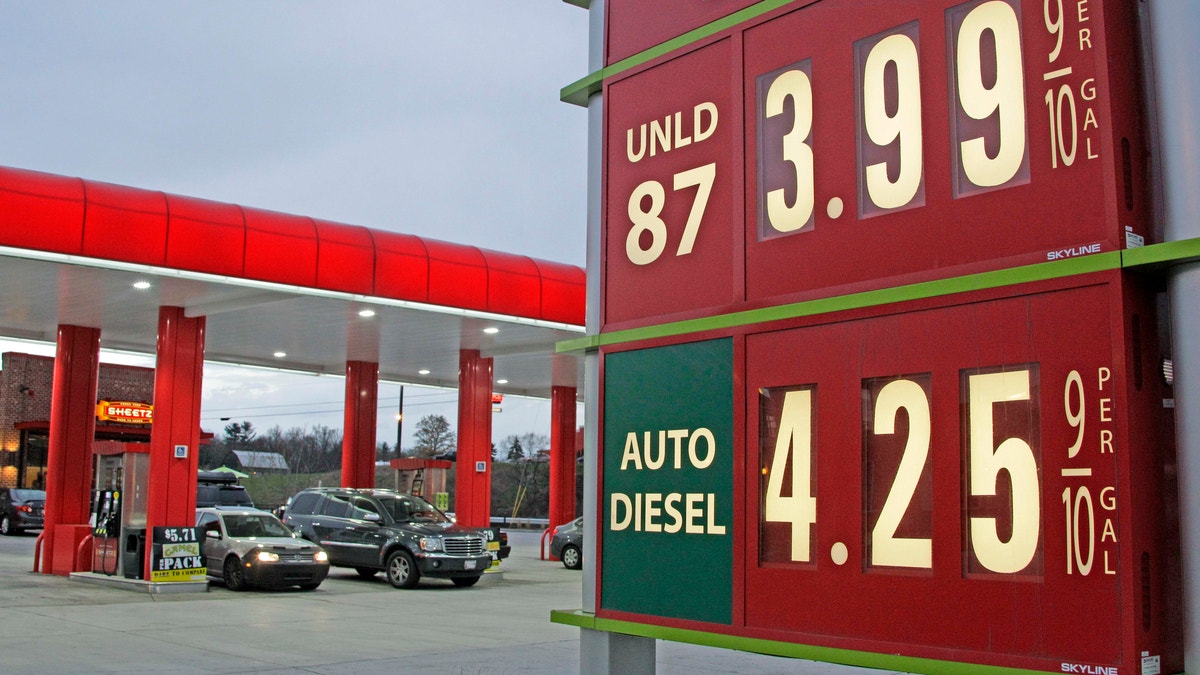
Gas prices are posted at a gas station in Breezewood, PA.
A large majority of American voters think gas prices pose a serious threat to the nation’s economic recovery. In addition, voters are sharply divided over whether President Obama could do more to bring down gas prices -- or whether he even wants gas prices to go down.
Nearly half of voters, 47 percent, say high gas prices pose an “extremely” serious threat to the economy, according to a Fox News poll released Monday. Another 40 percent consider it a “somewhat” serious threat.
Sixty percent of Republicans think high prices at the pump are an “extremely” serious threat to economic recovery. That’s nearly twice as many as the 33 percent of Democrats who think so.
Click here to see the full results of the poll.
Who do voters blame most for the rising prices? Big oil companies top the list (19 percent), followed by the Obama administration (15 percent), the federal government (9 percent) and OPEC/the Middle East (8 percent). Only 2 percent blame consumers or excessive driving. Respondents volunteered their answers to this question without being read a list.
Democrats (27 percent) and independents (21 percent) are most likely to blame big oil companies, while Republicans are most likely to fault President Obama (28 percent).
Could the president do more to ease the pain at the pump -- and does he want to? Half of voters (50 percent) think the president could do more to bring down gas prices, but for environmental reasons he doesn’t want to do that. Almost as many voters see it the other way around: that while Obama wants to do more, a president just can’t do much to control gas prices (47 percent).
Most Democrats (75 percent) think Obama wants to do more, but can’t. That sentiment is matched by an equal number of Republicans believing the opposite; the president could help, but doesn’t want lower gas prices (78 percent).
By a 53-41 percent margin, more independents think the president doesn’t want to help even though he could.
The Fox News poll is based on landline and cell phone interviews with 910 randomly-chosen registered voters nationwide and is conducted under the joint direction of Anderson Robbins Research (D) and Shaw & Company Research (R) from April 9 to April 11. For the total sample, it has a margin of sampling error of plus or minus 3 percentage points.




